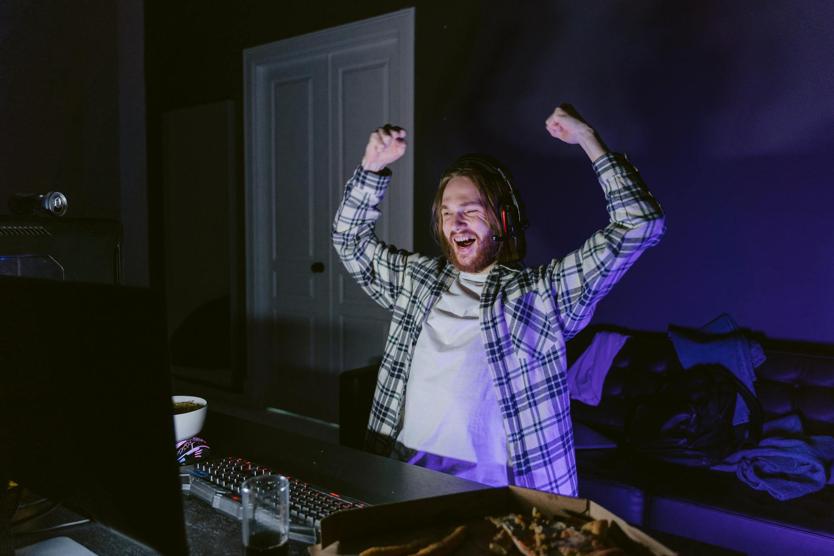
Parents everywhere want their kids to enjoy their childhood, first and foremost, in ways that also prepare them for the digital future. After all, nobody can say with certainty what apps, video games, or devices will look like in a decade or two from now. But they’ll be written in code.
With all the schools and programs offering to teach coding to kids, how can parents identify the best one? RP4K’s 18-week online coding experience is unique for several reasons, so you’ll unlock your child’s full potential if you integrate coding into your child’s schedule.
With RP4K, every coding session is like a hidden math class. By framing the math concepts around how to code video games, kids will absorb concepts like vectors, integers, and trigonometry without even realizing it.
Designing and programming a video game can be more engaging than playing them, so they won’t associate these fundamental math concepts with “math class,” like they would in school. Our founder, Elliott Bay, is a mathematician with an M.Sc.
It’s been shown that weekly coding classes for kids can help improve a child’s grades in math and other classes. Unlocking a child’s potential can help their performance in school, not just in online coding classes.
A child isn’t likely to explore their full potential unless they’re genuinely motivated. There’s a difference between knowing they ought to try hard to accomplish something and being sincerely hungry and driven.
RP4K has operated for more than 20 years, and in this time, we’ve made creating video games the main coding project and have watched as generations of kids are naturally drawn to finishing projects. Kids get motivated when playing video games and are just as driven to finish designing and programming them, too.
After your child’s 18-week session, they’ll have completed a video game they can show off to friends and family and play together, too. RP4K also leverages the same dynamics that make video games so much fun and engaging for kids for learning purposes.
Some coding schools use drag-and-drop programs, like Scratch, to demonstrate what coding is like to students. The problem is that no professional coders use Scratch in the field. It’s better for kids to learn the languages that coders really use to build today’s most popular video games, apps, and websites.
One day, they’ll be looking for a job as a professional coder or any other adjacent position available to people with advanced computer skills. Employers will look for coders who know the following languages:
Importantly, RP4K can begin teaching young, inexperienced students real coding languages. The lessons get gradually more complex and sophisticated as they progress, so students are always stimulated without ever feeling overwhelmed.
You can sign your kids up for Python classes even if they’re seven or eight years old and have never taken a coding class before. More experienced teenagers can begin further ahead, depending on their fluency in the coding languages we teach.
If you have any questions about the most suitable class for your child, given their skill and experience levels, don’t hesitate to contact RP4K. We can ensure they’re in the right difficulty level, and they can even take a free 45-minute trial lesson to test the waters and get a sense of what RP4K sessions are like.
Even the brightest, most determined students may struggle when a classroom environment is disruptive and too busy. The more students there are, the likelier these conditions are to occur.
RP4K limits all classes to a maximum of four students per session, as at most, there’s only your child and three others. We’ve found this is the ideal number, as students can easily get their teacher’s full focus and concentration.
Teachers shouldn’t have to deal with classroom management issues instead of the course material. For a few reasons, we also make it a point to hire undergraduate students in computer engineering, computer sciences, and game design.
They have the subject matter expertise necessary to teach. If older students are curious about where coding skills can take them later in life, they have the perfect resources to ask. The tech job market changes very quickly, so it’s crucial that the people they speak to have recent or contemporary experience.

On a more fun and fundamental level, younger teachers also grew up playing computer games at home, so they have first-hand experience of knowing what gaming feels like for kids. They can personally relate to our students, an intangible dynamic we’ve found to be invaluable.
RP4K believes that working well with kids is better than knowing everything there is to know about programming. RP4K is proud to hire several former RP4K students who look back on their experience fondly and want to continue the program from the other side of the computer screen.
Many things in the digital world are open-sourced, but not our curriculum! RP4K has its own curriculum that has been carefully improved and refined over 20 years, and signing up for our lessons is the only way to access it.
The curriculum we started in 1996 is now thousands of pages long and has evolved in major ways to keep up with the times. Our curriculum is our central repository, the backbone of our program. We’re very proud of it, and we think it can play a major role in helping your child develop to their full potential.
Parents everywhere want their children to learn to code online in productive, rewarding, and fun ways so they can reach their full potential. One day, maybe they’ll design video games professionally. Maybe they’ll work in an adjacent field where they can make use of their coding skills in another way or blaze their own digital trail by creating their own products. All we can do is make learning the math and coding fundamentals fun for kids and then build up their skills and confidence. Which direction they choose in life once their potential is unlocked is up to them, but we’re excited for their prospects!